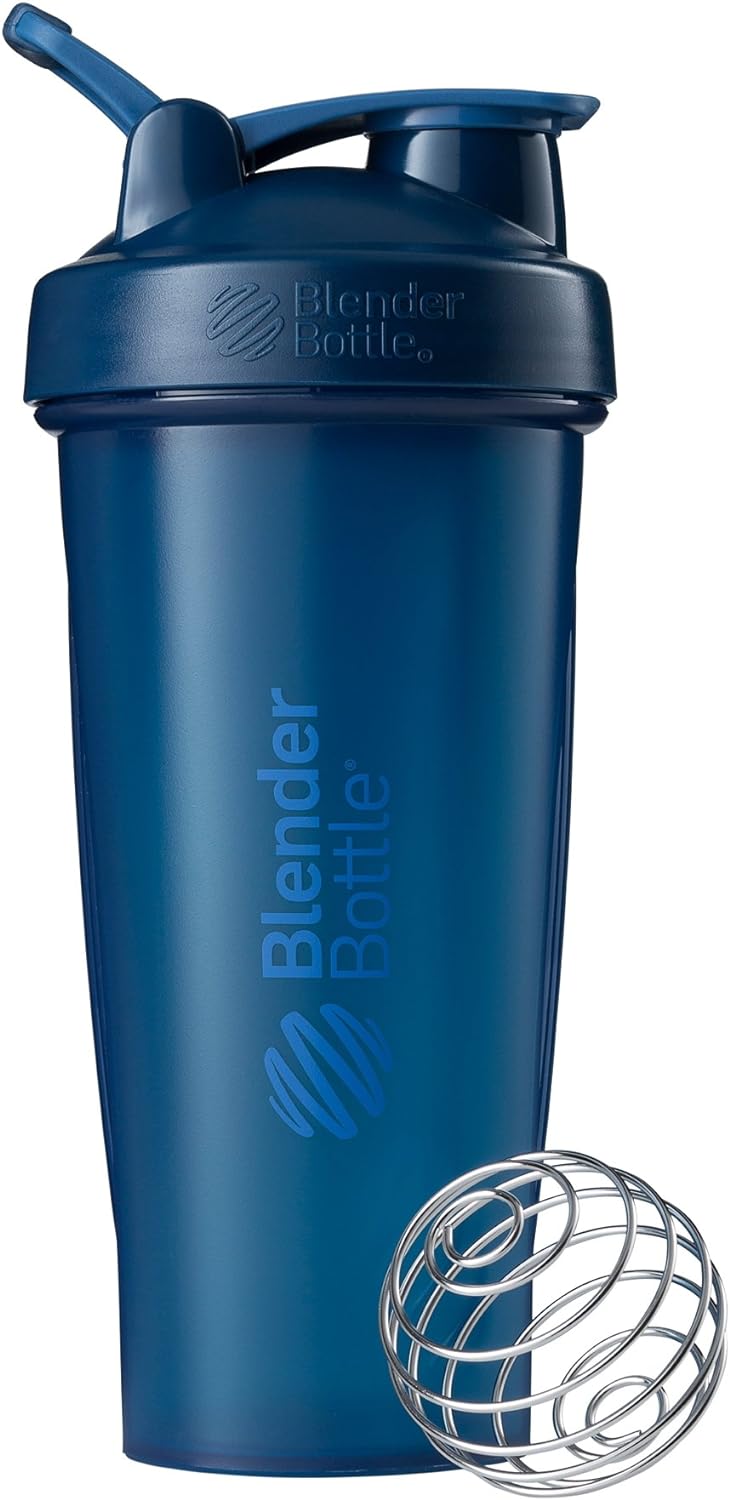How Much Protein Do You Need
Protein is like the building block of your body's foundation, crucial for maintaining muscle mass and overall health. But how much do you really need? It varies based on your age, activity level, and health status. Understanding these factors can help you tailor your protein intake effectively. So, what are the specific recommendations for you? Let's explore this vital nutrient further.
Key Takeaways
- The Recommended Dietary Allowance (RDA) is 0.8 grams of protein per kilogram of body weight for adults.
- Children require about 1.1 grams per kilogram to support growth and development.
- Elderly individuals need 1.0 to 1.2 grams per kilogram to help maintain muscle mass.
- Athletes may require 1.2 to 2.2 grams per kilogram, depending on their training intensity.
- Protein intake should be spaced throughout the day for optimal muscle synthesis and recovery.
Understanding Protein's Role in the Body
Protein is a vital macronutrient that plays numerous roles in your body, from building and repairing tissues to producing enzymes and hormones.
One of its key functions is protein synthesis, which is crucial for muscle recovery after workouts. When you exercise, your muscles experience tiny tears that need repairing, and protein helps mend them, promoting growth and strength.
Consuming adequate protein supports this process, ensuring your body can recover effectively and prepare for the next challenge. It's not just about quantity; the quality of protein matters too.
Incorporating various sources, like lean meats, legumes, and dairy, can enhance your overall intake. By prioritizing protein, you're giving your body the tools it needs to thrive and feel its best.
Factors Influencing Protein Requirements
Several factors influence how much protein you need, making it important to consider your individual circumstances.
Age factors play a role, as older adults often require more protein to maintain muscle mass. Your activity level significantly impacts your needs too; athletes usually need more than sedentary individuals.
Health conditions, such as chronic illnesses or recovery from surgery, can also increase your protein requirements. Additionally, your dietary preferences might dictate your sources of protein, which can affect overall intake.
Lifestyle choices, like stress and sleep patterns, may indirectly influence your metabolism and protein needs. Lastly, gender differences can matter, with men typically needing more protein than women due to greater muscle mass.
Understanding these factors helps tailor your protein intake effectively.
Recommended Dietary Allowance for Protein
When it comes to your daily protein needs, the Recommended Dietary Allowance (RDA) suggests that adults should aim for about 0.8 grams of protein per kilogram of body weight. This amount supports overall health, but it's important to consider protein quality, too.
Not all protein sources are created equal; focus on those rich in essential amino acids, like lean meats, fish, eggs, and legumes.
Additionally, think about protein timing. Spreading your protein intake throughout the day can enhance muscle synthesis and recovery, especially if you're active.
Protein Needs for Different Age Groups
As you consider your protein intake, it's important to recognize that protein needs vary significantly across different age groups.
During childhood, protein is crucial for growth and development; kids need about 1.1 grams per kilogram of body weight daily. This helps build muscles and supports overall health.
As you age, your protein requirements change. For adults, the recommendation is around 0.8 grams per kilogram.
However, for the elderly, protein becomes even more vital to help maintain muscle mass and prevent frailty, with suggestions rising to 1.0 to 1.2 grams per kilogram.
Tailoring your protein sources to your age group ensures you're meeting your body's unique needs and supporting your long-term health.
Protein Requirements for Athletes and Active Individuals
If you're an athlete or someone who engages in regular physical activity, you likely need more protein than the average adult to support muscle repair and recovery.
Endurance athletes should aim for around 1.2 to 1.4 grams of protein per kilogram of body weight daily, while those focused on strength training often require 1.6 to 2.2 grams.
This increased intake helps you rebuild muscle tissue after intense workouts and enhances overall performance.
Remember, your body's needs can vary based on your training intensity and goals, so it's essential to listen to it.
Prioritizing protein not only fuels your workouts but also aids in preventing injuries, ensuring you stay strong and active for the long haul.
Common Sources of Protein
Finding the right sources of protein is key to meeting your dietary needs, especially for those engaged in athletic pursuits. You can choose from both plant proteins and animal proteins, each offering unique benefits.
Animal proteins like chicken, fish, and eggs are complete proteins, providing all essential amino acids. On the other hand, plant proteins, found in legumes, nuts, and whole grains, often contain incomplete proteins, but combining different sources can help you achieve a balanced amino acid profile.
Don't forget about protein supplements if you're struggling to meet your goals. Snack on protein-rich foods like Greek yogurt or protein bars between meals to keep your energy up.
Embrace a variety of protein sources to support your active lifestyle and overall health.
How to Calculate Your Protein Needs
Determining your protein needs can be straightforward, especially when you consider factors like age, weight, activity level, and fitness goals.
Start by calculating your body weight in kilograms; then, multiply that number by your activity level factor. For example, sedentary individuals should aim for 0.8 grams of protein per kilogram, while those who are active may need 1.2 to 2.0 grams.
This protein calculation helps tailor your protein intake to support muscle maintenance and overall health.
Remember, those with specific fitness objectives, like building muscle or losing weight, might require adjustments to their intake.
Keeping track of your protein sources and ensuring you meet your needs can make all the difference in achieving your goals.
Debunking Protein Myths
What myths about protein have you encountered that might be misleading? Many people hold onto protein misconceptions that can skew their understanding of nutrition. Let's debunk a few common protein myths together:
| Myth | Reality | Impact on Diet |
|---|---|---|
| You need excessive protein | Most people only need 0.8g/kg of body weight | Leads to unnecessary intake |
| Protein builds muscle alone | Resistance training is essential too | Misguides workout strategies |
| All proteins are equal | Quality varies; focus on complete sources | Affects muscle recovery |
Understanding these protein myths can help you make more informed choices. With the right knowledge, you can nourish your body effectively and embrace a balanced approach to protein intake.
Tips for Meeting Your Protein Goals
When you aim to meet your protein goals, incorporating a variety of protein sources into your meals can make a significant difference. Start by including lean meats, fish, legumes, and dairy products in your meal planning. This variety ensures you get all essential amino acids.
Don't forget about plant-based options like quinoa and soy, which are also excellent sources. If you're struggling to meet your daily targets, consider protein supplements like powders or bars as convenient options. They can easily be integrated into smoothies or snacks, helping you reach your goals without too much hassle.
Signs You Might Need More Protein
Are you feeling more fatigued than usual or noticing slower recovery after workouts? These could be signs that you might need more protein in your diet.
Protein plays a crucial role in muscle recovery, helping your muscles repair and grow stronger after exercise. If you're experiencing persistent fatigue, it might be affecting not just your energy levels but also your immune function. Low protein intake can weaken your immune system, making you more susceptible to illness.
Additionally, if you're frequently feeling hungry or struggling to maintain your weight, increasing your protein intake may help you feel fuller longer.
Listening to your body and adjusting your protein consumption can make a significant difference in your overall health and well-being.
Frequently Asked Questions
Can Protein Supplements Replace Whole Food Sources?
Protein supplements can offer convenience and targeted intake, but they can't fully replace the diverse nutrients and health benefits whole foods provide. Aim for a balanced approach, combining both for optimal nutrition and wellness.
What Are the Risks of Excessive Protein Intake?
Excessive protein intake can lead to kidney damage and increase your dehydration risk. It's essential to balance your diet, focusing on whole foods to avoid these potential health issues while still meeting your nutritional needs.
How Does Protein Affect Muscle Recovery?
Protein plays a vital role in muscle repair. Consuming it shortly after your workout enhances recovery timing, helping your muscles rebuild stronger. This process reduces soreness and boosts your overall performance for future workouts.
Can Vegetarians Meet Protein Needs Without Supplements?
Yes, you can absolutely meet your protein needs without supplements. By focusing on vegetarian protein sources like lentils, chickpeas, and quinoa, you'll discover that plant-based proteins can provide all the essential amino acids your body craves.
Is There a Difference Between Animal and Plant Protein Quality?
Yes, there's a difference. Animal proteins generally have better protein digestibility and more complete amino acid profiles, while plant proteins can vary. However, combining sources can help you meet your needs effectively.
Conclusion
In conclusion, think of protein as the building blocks of your body's foundation. Whether you're a casual gym-goer or an elite athlete, understanding your unique protein needs is essential for optimal health and performance. By considering your age, activity level, and lifestyle, you can tailor your protein intake to support muscle growth, recovery, and overall well-being. Stay informed, listen to your body, and make smart choices to ensure you're fueling your potential every day.











